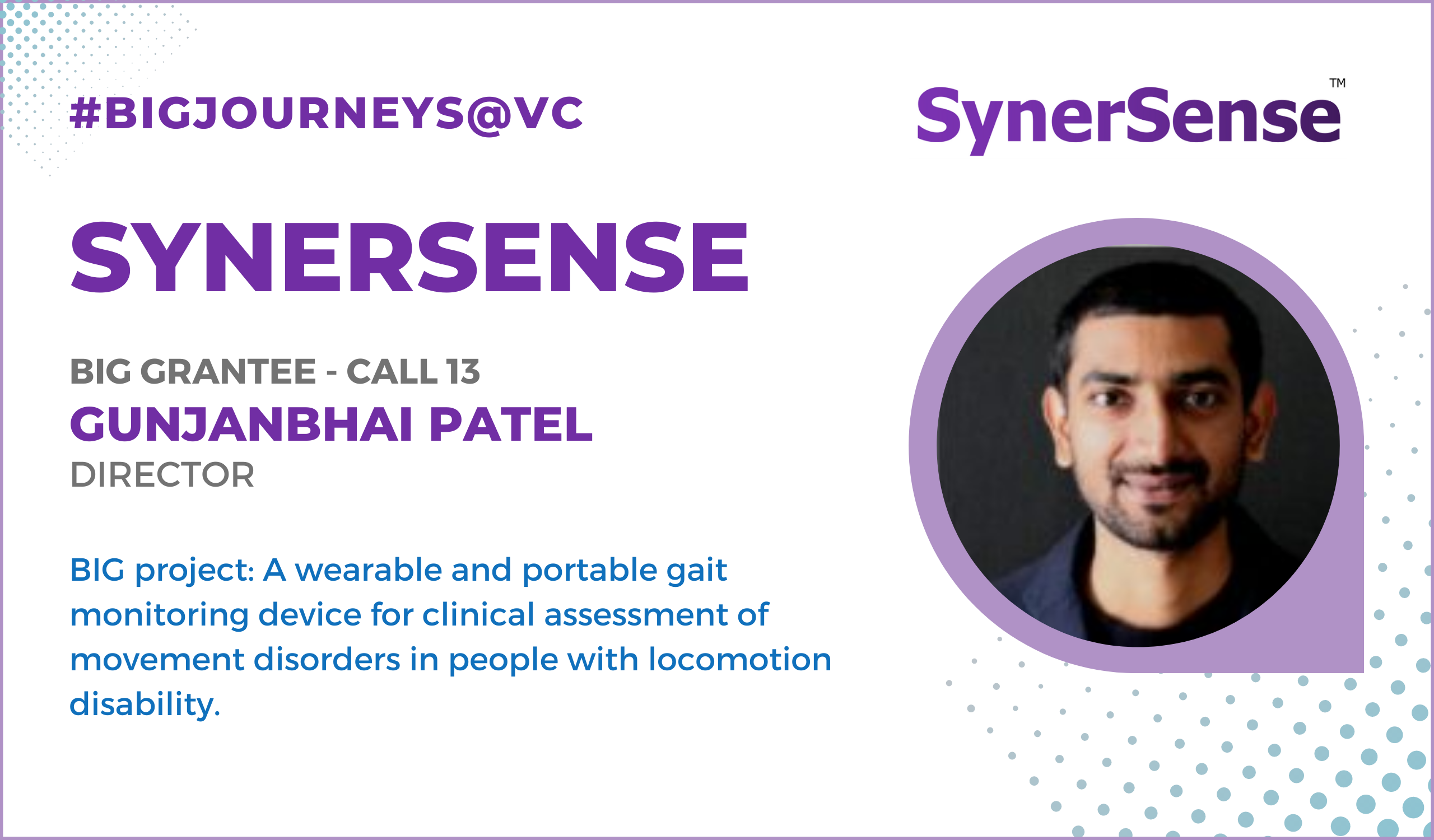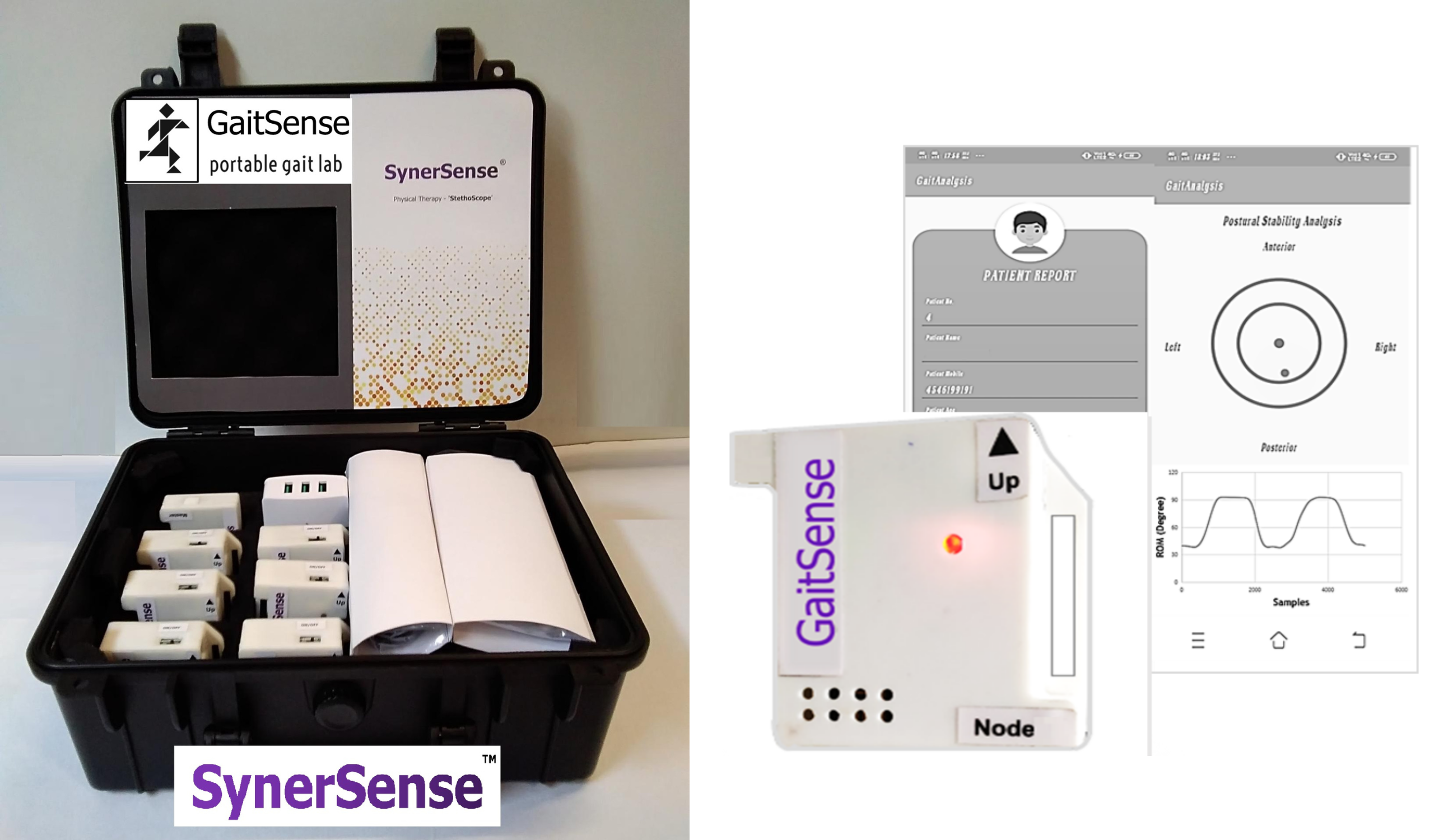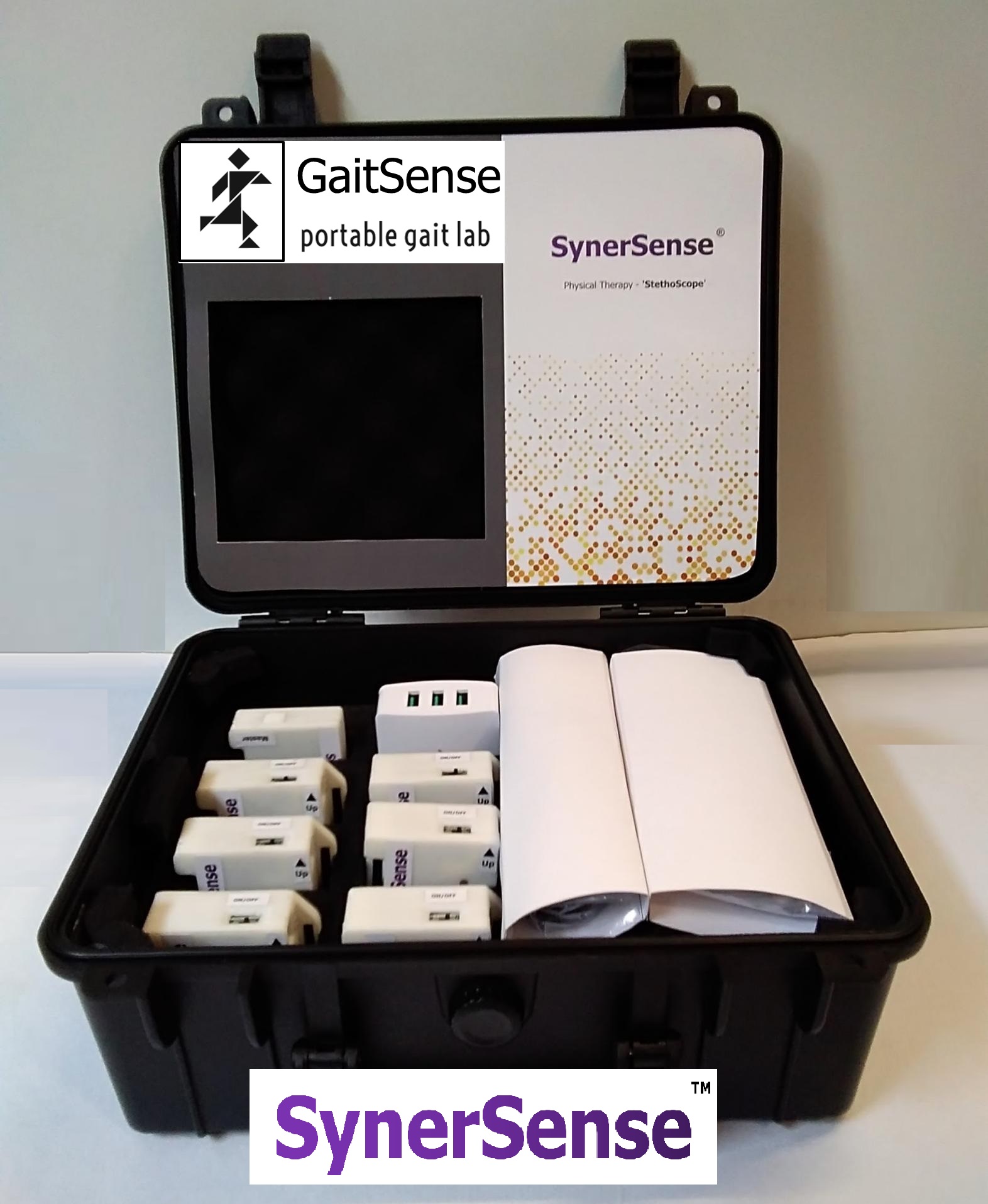In conversation with Dr. Gunjan Patel, Director of Synersense (July 2022)
Interviewed by N. Ramakrishnan
 Q1. What is your background and why did you apply for BIG?
Q1. What is your background and why did you apply for BIG?
I did my Biomedical Engineering from Gujarat. I did a fellowship in Biodesign from SIB-AIIMS New Delhi and MS from IIT-Madras. I was always passionate about biodesign, frugal innovation and research in novel biomedical technology, especially related to medical devices. I worked for some time and then joined MAHE, Manipal for my Master’s in medical software, specializing in medical IT related stuff. I got an opportunity to do an internship in a company in South Korea that specialized in radiology imaging platform and solutions. After completing my Master’s I joined L&T Technology Solutions. I took a break and did some consulting assignments relating to healthcare IT. I also worked in Samsung R&D in Bengaluru in their healthcare and medical device division. I have more than 10 years experience in R&D, innovation in startup, med-tech IT, Business Development strategy and manufacturing.
I signed up for a Ph.D at IIT Madras with a commitment that I would commercialize my research project in four-five years. Instead of a Ph.D, I completed an MS (Research) at the TTK R2D2 Lab in IIT Madras with joint research collaboration with CMC Vellore, which specializes in rehabilitation research and device development. All the while, I wanted to become a technology entrepreneur. It was at R2D2 that I fine-tuned my idea to come up with a wearable and portable gait monitoring device that will help in detecting and treating people with locomotion disability due to chronic orthopaedic and neurological disorders.
I did extensive research work on this and also realized the problem was much bigger than what I thought it was. I found that nearly 80 million people in the country were affected by locomotion disability, caused by various factors. The existing products to do gait analysis were prohibitively expensive and that is when I decided to build a product that was good and affordable. It was in 2018 that I started applying for various grants to help develop my product. I also applied for BIG.

Q2. What was your BIG project?
The project was to develop a wearable and portable gait monitoring device that would be affordable and efficient. I chose Venture Center to be a partner for the BIG Scheme, and I applied as an individual under the BIG Scheme. I registered SynerSense Pvt. Ltd. (based in Ahmedabad) as a company in November 2018. The grant was awarded in 2019.
We have developed GaitSense, a wearable and portable gait monitoring device for clinical assessment of movement disorders in people with locomotion disability. The device provides lower limb balance and walking analysis for patients with orthopaedic and neurological disorders. The device uses data analytics and machine learning to help orthopaedic doctors, neurologists and physiotherapists in their clinical assessment and to come up with the best treatment course for their patients.

Q3. How was your post BIG journey and what are your BIG plans for the future?
Initially, I had support as part of my research work from IIT Madras. I also won some cash awards. I published research articles in conferences and international journals. I bootstrapped initially. The BIG fund helped me shape the proof-of-concept to a minimum viable product with Edge computing technology. I also needed a software application platform. I built a MoveAxon Motion Capture application where I could connect my hardware GaitSense and software MoveAxon to do the human motion capture data processing and delivering key gait analysis parameters.
At that time, we were a six-member team and we recruited three people. The BIG fund helped me hire the right talent to develop the product. We also got an opportunity to validate the unmet clinical addressed problem with 150+ doctors, private clinics and 25+ hospitals (such as AIIMS, CMC Vellore, Apollo, DHM, Jupiter, Manipal Hospital) and get inputs from the field and further improve the product. The other major issue about product was regulatory clearances and certifications. Venture Center had tremendous expertise in this area and they provided a major assistance that enabled us to follow the product regulatory pathway, user trials and testing at various clinical settings.
We were about the finish the product when Covid hit. We were not able to move for the hardware development because the market was closed and there was no support from out-sourcing vendors. We asked for and got extensions for the BIG Scheme, which usually lasts 18 months. We are targeting to commercially launch the product this year. However, there are various external challenges. Getting semi-conductors is a big challenge now because of the global scenario. We are nearly in the pre-commercialization stage with the product and we have done early-stage validation, achieved ISO and IEC certification as part of the regulatory process. Once the global supply chain issues improve, we will be able to go to the market and launch our product.
Q4. Any advice for aspiring BIG grantees?
Those planning to apply for the BIG Scheme need to keep a few things in mind. The first relates to the problem they are solving. Does it have a big impact? This essentially gives you an idea of the market size and dynamics. Second, do you have concrete background study or a proof-of-concept ready? The applicants should have some form of validation. Third, do you have a strong team and is it diverse. Finally, you have to think about the roadmap – how you will take the product to the next level, what are your plans to hit the market, do you need to raise more funds, and, if so, how much. These are the aspects that are important at the application stage.
There is a certain weightage given for various aspects when you apply. These cover idea and innovation, how strong is the problem, whether it is a big problem that you are trying to solve or is it a niche one, whether the market is big or small, how strong is the intellectual property, how strong and diverse is the team, and what are your plans for execution and whether you will be able to deliver as per the milestones. They also look at your fund-raise roadmap and your product launch timelines. All these helped me understand where I stood, how good was my team, the strength of my innovation and product and a lot more.
Q5. Despite being virtually (remotely) incubated, how was Venture Center able to help as your BIG partner?
Venture center management extended hand-holding support, extending timelines of project and mentoring during the Covid-19 pandemic, which was the toughest time. Venture Center, as BIG partner and incubation center, helped to facilitate a biomed-tech ecosystem access and business mentorship, right introductions to resources, connections and providing guidance at the right time. The application process itself is quite comprehensive and the entrepreneurs may need to make several iterations to their proposal before they even present it to the screening committee. Right through the process, Venture Center was always there for me.
![]()
